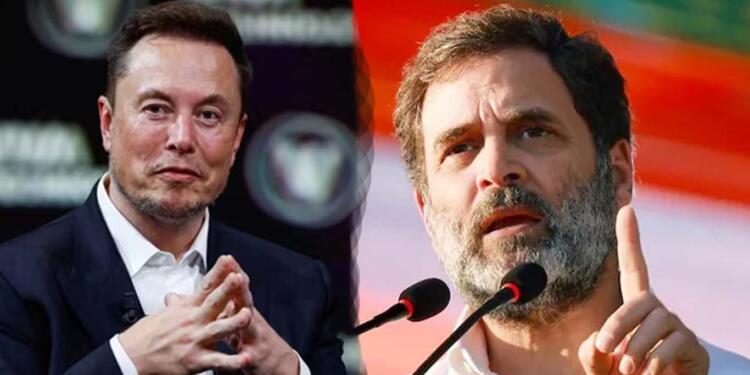Why is there such intense focus solely on India? Why do some nations feel uneasy about Modi’s victories? Recently, we’ve witnessed how the Western media reacted to Modi’s success and how certain countries supported large corporations in spreading misinformation against him. Why is there so much fear and envy surrounding India’s progress?
Even within the country, there are voices questioning the Indian system. Initially, Rahul Gandhi and the Congress accused the BJP of manipulating EVMs. However, after the BJP performed well in the 2024 Lok Sabha elections, no questions were raised by Congress about the integrity of the EVMs. Now, as Modi begins his third term, the baby cry of congress have resurfaced.
Recently, a remark made by Elon Musk on social media sparked a significant debate in India regarding the security of Electronic Voting Machines (EVMs). Musk, referencing concerns raised by Robert F. Kennedy Jr., highlighted potential vulnerabilities in EVMs, suggesting a risk of hacking, either by humans or artificial intelligence.
Responses from Indian Officials
Former Union Minister Rajeev Chandrasekhar swiftly countered Musk’s assertion, emphasizing the robustness of Indian EVMs. He stressed that these machines are custom-designed, ensuring security by isolating them from any network or media. Chandrasekhar pointed out that Indian EVMs lack connectivity features like Bluetooth, Wi-Fi, or internet access, which mitigates external tampering risks.
Opposition Leaders’ Perspectives
In response, prominent opposition figures including Rahul Gandhi and Akhilesh Yadav reiterated longstanding doubts about the transparency and reliability of EVMs used in India. Gandhi criticized the EVMs as being a ‘black box’ without adequate scrutiny, raising concerns about the electoral process’s transparency and accountability.
But why did they not raise these questions after the good performance in the elections, and only began questioning after Modi started his third term?
EVM Security
While acknowledging Musk’s viewpoint that “anything can be hacked,” Chandrasekhar clarified that the focus should differentiate between theoretical vulnerabilities and practical security measures implemented in Indian EVMs. He underscored that while technological advancements could potentially breach any digital system, the design and architecture of Indian EVMs prioritize security and reliability in contrast to other global practices.
Call for Transparency and Examination
Several opposition leaders echoed demands for a return to paper ballots, citing global apprehensions and the alleged susceptibility of EVMs to tampering. They called for scientific scrutiny of EVMs by independent experts under parliamentary oversight to address public concerns comprehensively.
“Do paper ballot not contain vulnerabilities? There was a time everyone remembers when instances of booth capturing, stuffing of ballot boxes, and tampering during transportation and counting processes were very common. It is quite susceptible, therefore, why politicians from some parties are attempting to revert to the ballot paper method, despite its vulnerabilities, and are reluctant to accept EVMs and their authenticity.”
EVM Evolution and Criticisms
Introduced to enhance efficiency and reduce fraud, EVMs have been a subject of controversy globally. In India, their implementation since 2017 includes a paper trail, mandated by the Supreme Court, intended to bolster transparency.
Election Commission’s Stand and Public Perception
While the Election Commission of India has not directly responded to Musk’s comments, local authorities in Mumbai have refuted reports of attempted EVM hacking. The Commission’s invitation to political parties in 2017 to demonstrate hacking possibilities saw limited participation, indicating ongoing concerns and the need for broader consensus on EVM security.
Conclusion
The debate ignited by Elon Musk’s remarks reflects broader global apprehensions about the reliability and security of EVMs in democratic processes. While India has implemented safeguards such as paper trails, concerns persist, requiring continuous scrutiny and transparency enhancements to uphold electoral integrity.
The intense scrutiny on India’s electoral system, particularly around EVMs, reflects global unease and skepticism towards Modi’s victories. Recent reactions from Western media and support for misinformation underscore fears and envy surrounding India’s progress. Even within India, the debate persists despite efforts to enhance EVM security and transparency.
ALSO READ: Enough of China: What Does It Want Now?




















